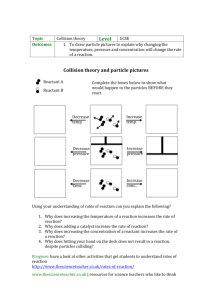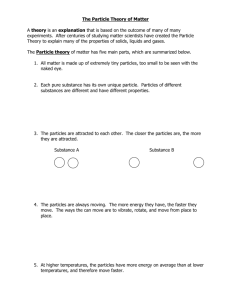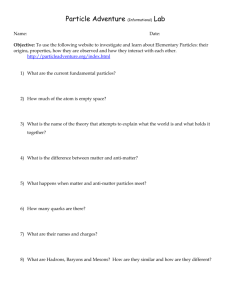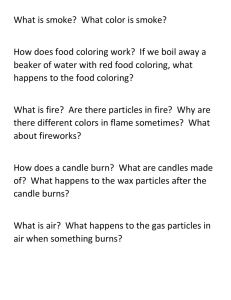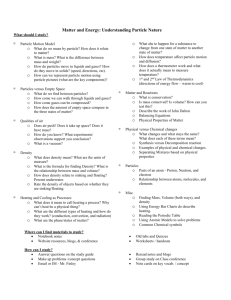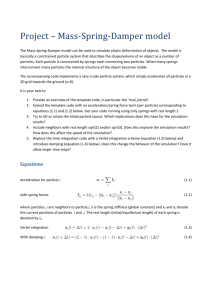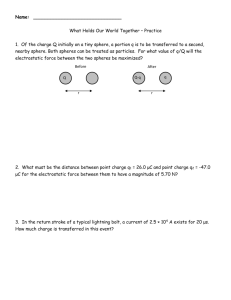Standard Operating Procedure
advertisement
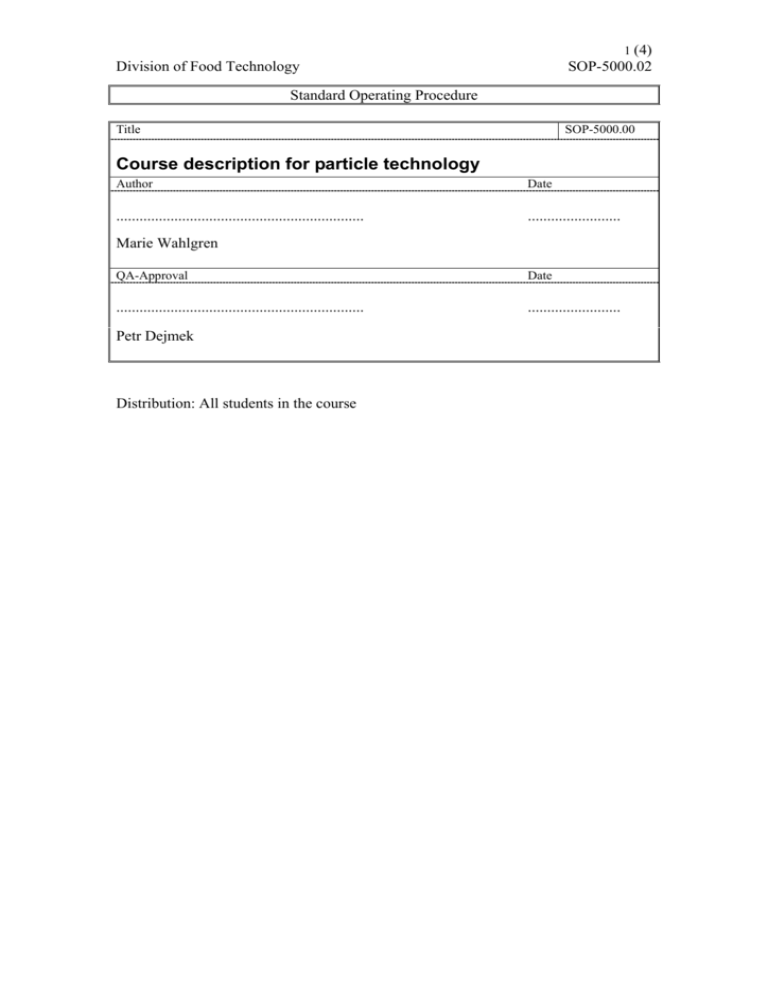
1 (4) Division of Food Technology SOP-5000.02 Standard Operating Procedure Title SOP-5000.00 Course description for particle technology Author Date ................................................................ ........................ Marie Wahlgren QA-Approval Date ................................................................ ........................ Petr Dejmek Distribution: All students in the course 2 (4) Division of Food Technology SOP-5000.02 Purpose The purpose of this SOP is to give a description of the course Particle technology. Responsibility The teacher in pharmaceutical technology is responsible for this SOP. Introduction The aim is to acquire knowledge within the field of particle technology including particle characterisation as well as particle interactions in different types of fluids in order to be able to identify and solve problems arising when handling particular material. The course covers the following subjects: Flow around single particles and through porous beds. Characterisation of particles and powders. Measurement of particle size distribution. Sampling. Storage in silo. Mixing. Segregation. Hydraulic and pneumatic transport. Grinding. Agglomeration. Wet granulation. Tabletting. Coating. Learning outcomes Knowledge and understanding • Understand how the properties of the single particles influence their performance at particle characterisation and in flowing systems. • Understand how the properties of assemblies of particles influence the characterisation of bulk of particles and particulate unit operations. • Be able to define basic concepts within particle technology Skills and Abilities • Be able to apply basic fluid dynamics on particulate flowing systems • Be able to apply the knowledge of single particles and bulk material on a number of particulate unit operations • Be able to present solutions of a problem in short written communications. • Be able to present a small project orally and in a project report Values and Attitudes • Be able to independently acquire and value information Description of the course The course is comprised of 13 different topics presented in lectures. Assignment problems are introduced in most lectures. Solutions to each assignment problem is submitted individually as a typed short memo and will be discussed at a seminar. The course also includes a group practical that will include the characterization of a sample. The practical is divided into two parts: characterization of individual particles, and production of granulates and characterization of granulates. The practical will be reported both as a report of max 10 pages and as oral presentations, see SOP 5003. 3 (4) Division of Food Technology SOP-5000.02 Examination The course grade is pass/fail (UG) and to pass the course the student shall have completed all exercises including the practical. The student has to • Submit all the assignment memos and actively participate in all seminars. • Participate actively in the practical, hand in a written report and present the results in a seminar according to SOP 5003 Course literature Coulson, J M, Richardson, J F: Chemical Engineering - particle technology and separation processes, Vol.2, 4th ed, Pergamon Press, Oxford 1993. Aulton, M E (ed.): Pharmaceutics- the science of dosage form design, 2nd ed., Churchill Livingstone, New York 2002. Handouts from the division. Electronic books from Elin Hiroaki Masuda, Ko Higashitani, Hideto Yoshida Powder Technology Handbook Practical information Contact information teachers Professor Petr Dejmek (PD), petr.dejmek@food.lth.se, 046- 222 98 10 Lecturer Marie Wahlgren (MW), marie.wahlgren@food.lth.se, 0702-216689 Tutor for laboratory experiment Emma Magnusson, em22cc@student.hik.se Deadlines etc The assignments memos should be handed in at the corresponding seminar The written report on the practical exercise should be handed in before the date of the final seminar. Procedure for seminars All students will submit a short memo of their solution prior to the start of the seminar. A randomly chosen student will present his/her solution, and the student group will discuss this solution in relation to alternative suggested solutions. 4 (4) Division of Food Technology Review history Revised March 12 2009, PD SOP-5000.02
